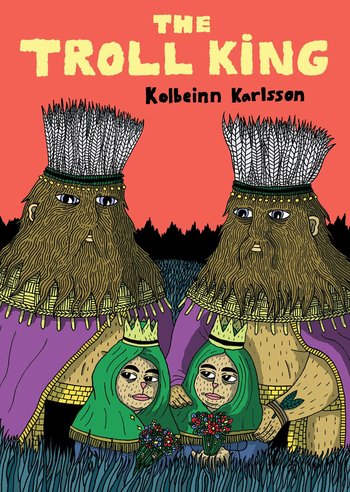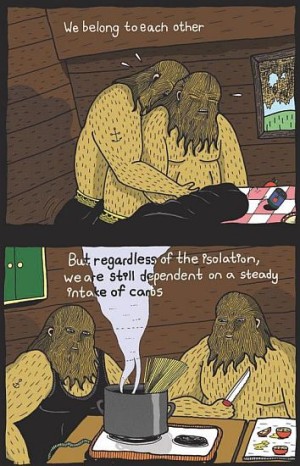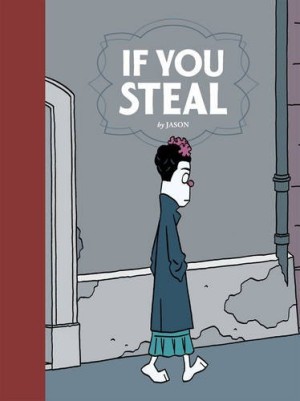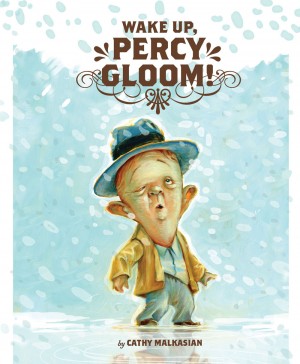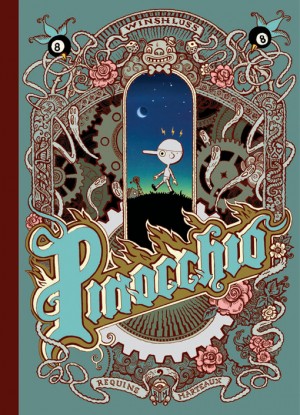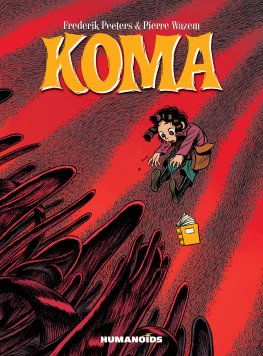Review by François Peneaud
Gay woodsmen, kings of the forest, surreal imagery, sweetness and love and mysterious rituals… Kolbeinn Karlsson’s The Troll King is a beautiful and unsettling book that deserves a place of choice on the bookshelves of readers who enjoy straying from the beaten path.
Saying something is “dream-like” is often a cop-out to avoid trying to analyse it deeper, but in the case of this book, it is hard to find any better description for the impression created by reading the stories concocted by this Swedish artist. Composed of half a dozen mostly wordless tales set in the same neck of the woods (literally), the book follows the lives of a forest’s strange denizens, ranging from hairy men in love to incomprehensible deities, building a picture of a coherent world without completely making sense.
The art displays a deceptive simplicity that makes the stories look like a children’s tale, with its flat colours and its mythical beasts. The storytelling is not complex either, with a maximal of two panels per page, making it a comfortable experience for the uninitiated. This first visual impression is quickly dissipated, giving way to an uneasiness rising out of the grotesque imagery of shapeless forest spirits, babies with knife-like teeth and unexpected scenes of a gory Wild West right in the middle of the story. One could never say that Karlsson plays it safe.
A few words about the longest two stories, where two burly wildmen live together in marital bliss, thanking the sun every morning, refusing to show themselves to townspeople (because they don’t deserve it). The only thing missing to their happiness? Kids, of course. A forest deity will grant their wish in an unexpected fashion. The second story concerning the wildmen is the most affecting, and in fact, the most realistic, despite its fantasy settings (or maybe thanks to). We follow the happy years they spend with their two kids, as the boys discover life in the woods. The quiet domesticity is moving, as is the relationship between the two fathers and their offspring; but what is even moving is the depiction of the growing dissent in the family, as the then older boys decide to make a life for themselves.
Of course, there’s more to the book than the life of the two men, which covers a little less than half its pages. The world-building comes to the forefront with the other sequences, which show a hairy dwarf being dined by magical creatures, gnomes growing new kin from skulls put in the ground, and linking all this (and more), the strange creature who gave boys to the wildmen. There is a narrative, and there is a common world, but we can’t quite grasp it, which makes one feel like reading the book over and over again.
The Troll King is a book that should be shelved beside Edie Fake’s Gaylord Phoenix. Both books present addictive and lush imagery, as well as characters following rules we can’t completely understand. Being able to read more works by Kolbeinn Karlsson would be very welcome, but one might have to learn Swedish for that.
